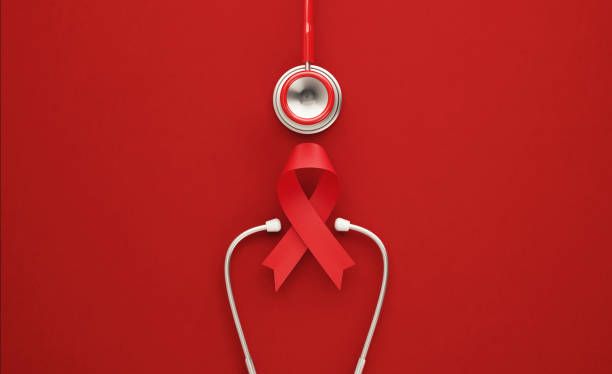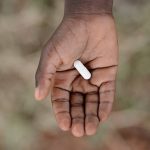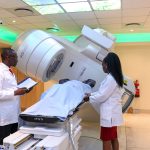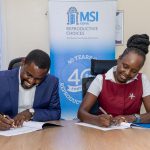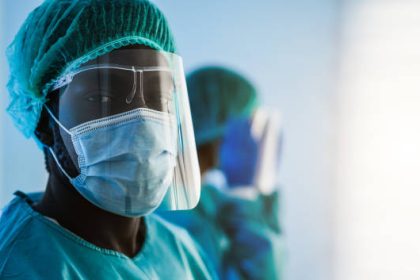In Kenya, Trump’s Orders will affect thousands on HIV treatment besides over 25,000 medics and community healthcare workers who will temporarily lose jobs
President Donald Trump’s Stop-Work Order to suspend all foreign assistance from the USA for 90 days will affect over 20 million people – including in Kenya – who are supported by the President’s Emergency Plan for AIDS Relief (PEPFAR).
But the Ministry of Health has assured Kenyans of sufficient HIV commodity stocks for six months besides actively engaging other development partners, international agencies and private sector stakeholders for alternative resources and supply of essential medicines to fill in gaps resulting from the stop-work order.
President Trump made the shocking decision shortly after he was sworn in on January 20. The stop-work order will affect the health programmes of among others, PEPFAR and USAid which support HIV programmes in Kenya.
The Order was among 78 other executive actions, including US withdrawal from membership of the World Health Organization (WHO) as part of a broader freeze on nearly all US global health funding.
“We have sufficient stock of HIV commodities be it antiretrovirals or testing commodities,” said Director General for Health, Dr Patrick Amoth who also appealed to Kenyans on treatment to access medications “because we have the medicines and the healthcare workers to provide that service.”
PEPFAR provides life-saving HIV treatment to over 20.6 million people worldwide and has been credited with preventing 26 million AIDS-related deaths, according to PEPFAR’s Monitoring, Evaluation and Reporting, Budgetary, and Human Resources for Health Inventory Data for 2024.
Over 200,000 people have been receiving new daily supplies of ARVs globally, with over 7,000 children among those affected with the stop-work order.
The Andelson Office of Public Policy under the American Foundation for AIDS Research (AMFAR) says it will take an enormous effort to re-engage the affected people in treatment after the stop-work order is lifted.
Some of the worst hit countries include South Africa with 101,368 people including 974 children affected; Mozambique with 25,932 including 1,257 children; and Kenya with 17,229 people including 841 children.
Tanzania has 15,115 affected including 601 children; Uganda has 14,015 including 717 children; Nigeria has 11,077 including 437 children; and Zimbabwe has 10,325 affected, including 486 children.
The stop-work order impacts not only people living with HIV but also the clinical workforce.
AMFAR notes that globally, PEPFAR directly supports 271,229 individual healthcare workers, amounting to 190,693 full-time equivalent positions. They include 12,579 doctors and clinical officers, 21,819 nurses and midwives, 7,222 pharmacists, and 153,888 community health workers who have received orders to stop reporting to health clinics or serving patients.
According to AMFAR, this stop-work order will affect people who are not living with HIV because PEPFAR-supported healthcare workers may be the only staff of specific cadres at a given facility.
“For instance, smaller primary health centres may have only a single pharmacist, meaning that even if there are other staff providing clinical services, they have no legal mechanisms to dispense medications during the stoppage,” reads part of the statement by AMFAR.
In Kenya, the most affected are the over 1.2 million people currently on treatment, 1,952 doctors and clinical officers, 1,234 nurses and midwives, 578 laboratory staff, 340 pharmacists, and 24,577 community healthcare workers.
The order will also affect pregnant women and babies at risk of acquiring HIV through Mother-to-Child Transmission. According to data from the PEPFAR Monitoring, Evaluation and Reporting Database (MER), the organisation is currently providing ARV treatment to 679,936 pregnant women living with HIV both for their health and to prevent transmission to their children.
“Based on an expected HIV transmission when a woman is not on treatment, and assuming that 50% of pregnant women on ART would deliver during the 90-day stoppage, we estimate that this would mean 135,987 babies acquiring HIV,” reads part of the AMFAR statement.
AMFAR notes that these babies are likely to go undiagnosed because infant HIV testing services are also being suspended due to the stop-work order. This is because PEPFAR provided HIV testing to 660,024 babies born to mothers living with HIV in the financial year 2024, equating to approximately 1,808 babies tested per day. Therefore, the number of new HIV infections among infants per day of stoppage is estimated to be 1,471.
Similarly, 6.5 million children and adolescents have been served by the Orphans and Vulnerable Children Programme annually, equating to approximately 17,694 served per day. AMFAR notes that this programme is more likely to be fully dependent on PEPFAR grant funding and will cease operations completely during the funds freeze.
Data from MER shows that the most affected countries with this programme include Nigeria with 3,970 orphans and vulnerable children, Tanzania with 1,773, Kenya with 1,602, Zambia with 1,471, and Uganda with 1,443 children.
Another consequence of the stop-work order will be cervical cancer screenings. Through the Go Further Campaign, PEPFAR supports cervical cancer screening, diagnoses, and treatment services for women living with HIV. According to AMFAR, in 2024, PEPFAR supported screening of 2,614,743 women living with HIV and diagnosed 55,195 cases of cervical cancer or precancerous lesions.
“This equates to 7,164 women screened every day and 363 diagnoses of cervical cancer or precancerous lesions per day,” reads the AMFAR statement.
In addition to these, the stop-work order will also impact the fight against gender-based violence. In 2024, PEPFAR provided 1,320,402 survivors of gender-based violence with post-violence care.
According to AMFAR, this equates to providing services to 3,618 people experiencing domestic and sexual violence each day, including things like rape kits, HIV testing, post-exposure prophylaxis, and other essential services.
Data from PEPFAR shows that Kenya is the most affected country with 1,207 people who were provided with violence support services per day. Other countries include Uganda with 692 people, Tanzania with 649 people, Nigeria with 232 people, and Mozambique with 180 people.
HIV testing services will also be significantly impacted once the stop-work order is in effect.
This is because PEPFAR supported 83,223,512 HIV tests in the financial year 2024, equating to approximately 228,010 people tested every day, resulting in 4,538 new daily diagnoses and 4,509 people newly initiated on treatment every day. According to AMFAR, testing for HIV is extremely dependent on the community healthcare workforce and lay counsellors funded by PEPFAR grants.
Dr Amoth said that Kenya has managed to achieve the triple 95-95-95 global targets on HIV, which state that by 2025, 95% of people living with HIV know their status, 95% of people diagnosed with HIV are on antiretroviral therapy (ART), and 95% of those on ART achieve viral suppression.
According to Dr Amoth, 98% of the Kenyan population know their HIV status, 98% of them are on treatment and 94% have achieved viral suppression, which he attributed to mother-to-child transmission.
Additionally, the government is considering a review of public service workplace policy on HIV to mitigate the effects of loss of man hours occasioned by the disease and other related chronic health conditions, according to Public Service Principal Secretary, Amos Gathecha.
He explained that about 36,260 public servants are currently living with HIV, a major drawback to productivity and “this policy will guide measures to mitigate and improve employees’ productivity and the ability to seek healthcare services without fear of discrimination.”



